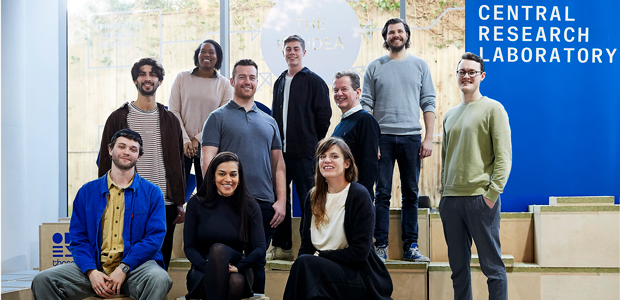
CRL accelerator programme celebrates 5th year anniversary
The Central Research Laboratory (CRL) has announced the launch of its 7th world leading accelerator programme, which celebrates five years supporting early growth stage product pioneers.
Supported by ERDF (European Regional Development Fund) the programme attracted over 85 applicants. A panel of 15 mentors and experts, including CRL co-founders Mat Hunter and Paul Rostas, and Entrepreneur in Residence, Jim Reeves, selected six finalists, who will take part in an intensive support programme over the next 6 months focused on product development and design, commercial & growth strategies and investor readiness.
In addition, each startup will be given a £5,000 start-up grant for prototyping and testing, as well as the opportunity to meet with and gain insights from key manufacturers in their sector.
This year’s programme has seen a rise in startups creating products and services that enhance human life and our environment, including ventures that are focused on sustainability, med-tech, mental health and sport-tech.
The CRL accelerator programme has supported a range of successful award-winning new businesses who have raised a combined £5m investment over the past few years. Notable alumni include Aceleron, creating sustainable lithium batteries, who were amongst the top 10 shorted listed for the 2019 Telegraph Tech 4 Good Pioneers. Cosicare, a female led tech startup focused on alleviating the symptoms of Eczema and winning the 2019 Mayor of London’s Award for Innovation, Tata Varsity Pitch 2019 and Santander Entrepreneur of the Year 2019. And Chip[s] Board, a company committed to creating bio-plastics and bio-plastic composites for the design sector on a global basis.
The team at CRL will be helping to guide and support the 7th Cohort including CRL Managing Director, Toby Kress, Accelerator Programme Leader Anneza Pitsialis and Director of Product Development, Jim Reeves.
Toby Kress said: “It’s amazing to celebrate five years successfully supporting product makers and hardware pioneers and reflecting on the achievements of our diverse cohort members over the past few years makes me very proud. Our accelerator programme is truly unique, offering 6 months of intense support blending product design expertise, customer research, manufacturing and market understanding. This year’s cohort is another exciting collective of talent who are working to create solutions for human challenges including mental health, sports recovery and personal medical care”.
2020 CRL cohort background
STIX MINDFULNESS
Founded by: Liam Murphy
Stix is an interactive product supporting children living with ADHD. Through mindfulness activities such as meditation and balance, Stix monitors the users’ movements, enhances calmness helping to reduce symptoms of impulsiveness and hyperactivity.
Founded by: Lottie Whyte & Joe Gray
MyoMaster is a wellness company on a mission to help every athlete in the world recover faster.
Their products combine extreme leg compression with contrasting hot and cold capabilities designed to significantly decrease athlete recovery time post injury.
Founded by: Pete Barr & Eli Heath
The Enayball is an art tool that enables anyone in a wheelchair, even the most severely paralysed, to paint. The Enayball attaches to the front of a person's wheelchair and extends outwards. As the person moves their chair, it paints a line on the surface below.
CRYOSUIT
Founded by: Matt Anderson
Cryosuit is a portable body cooling device to treat heat illness. Cryosuit aims to eliminate the logistical barriers encountered with current treatment, providing a practical and unanimous cooling solution for all instances of heat illness.
Founded by: Melissa Berthelot
M2JN Ltd. Melissia is developing a wearable medical device for in-hospital high-risk patients to provide health prediction, allowing preemptive care to improve patient outcome and reduce related care costs.
BIOPHILICA
Founded by: Mira Nameth
Biophilica is developing materials from green waste making them both biodegradable and recyclable. The production process is local, scalable to urban and rural locations, and is climate independent, allowing for global applications.

